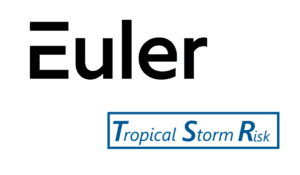What area is not protected by most homeowners insurance?
What area is not protected by most homeowners insurance?
2. What’s NOT Covered On a Standard Homeowners Insurance … Earthquake and water damage. In most states, earthquakes, sinkholes, and other earth movements are not covered by your standard policy.
What is an HO 5?
Sometimes called the comprehensive form, an HO5 policy is a type of home insurance written on an open-perils basis. This means your insurer covers damage to your home and personal property when it’s caused by an event, or peril, as long as it’s not listed as an exclusion in the policy.
What is the most basic home insurance coverage?
An HO-1 policy is the most basic of all the types of homeowners insurance policies. It only provides coverage for the structure of your home, attached structures like garages, and appliances and home features like carpeting. It does not include coverage for personal property, liability or additional living expenses. Feb 9, 2022
What is the most important part of homeowners insurance?
The most important part of homeowners insurance is the level of coverage. Avoid paying for more than you need. Here are the most common levels of coverage: HO-2 – Broad policy that protects against 16 perils that are named in the policy. Feb 14, 2014
Why are older homes more expensive insurance?
Older homes are viewed by homeowners insurance companies as higher-risk than newer homes — they can be fragile, their construction materials may be obsolete, and certain structural components like the roof or plumbing may not be in very good shape — and therefore homeowners insurance premiums for old homes are …
Which of the following disasters is typically not covered by property insurance?
Ground shifts, including earthquakes and landslides, are generally not covered by basic homeowners insurance policies. Mar 24, 2022
What is covered by homeowners insurance?
Home contents insurance is designed to cover your household goods against loss or damage caused by accidents like theft, burglary, fire, malicious damage, and/or natural disasters like storm and flood damage amongst others. These household goods include the likes of furniture, curtains, home appliances and clothing. Mar 6, 2017
How much will homeowners insurance go up in 2022?
The average homeowners insurance cost in the United States in 2022 is $1,393 per year for a policy with $250,000 in dwelling coverage. This is a 6% increase from 2021’s average price of $1,312 per year. 4 days ago
Does mortgage insurance go up every year?
Since annual mortgage insurance is re-calculated each year, your PMI cost will go down every year as you pay off the loan. Mar 15, 2022
Why is insurance going up so much?
These reasons may include having filed a new claim or having had a traffic violation added to your driving history, adding or changing a vehicle, adding or changing a driver and increasing the amount of your coverage.
How much would a $60000 mortgage cost per month?
Rick Bormin, Personal Loans Moderator The monthly payment on a $60,000 loan ranges from $820 to $6,028, depending on the APR and how long the loan lasts. For example, if you take out a $60,000 loan for one year with an APR of 36%, your monthly payment will be $6,028. Sep 10, 2021
How much is a $200 000 mortgage per month?
On a $200,000, 30-year mortgage with a 4% fixed interest rate, your monthly payment would come out to $954.83 — not including taxes or insurance. But these can vary greatly depending on your insurance policy, loan type, down payment size, and more. Credible is here to help with your pre-approval. Jan 4, 2022
How much does $1000 add to your mortgage payment?
Breaking it down further by every thousand dollars of your mortgage can help you how it all adds up. On that same $250,000 loan with 5 percent interest, you would pay $5.41 in interest each month for every $1,000 of the loan. You would pay $64.91 each year for every $1,000 of the loan.
What can you write off as a homeowner?
Let’s dive into the tax breaks you should consider as a homeowner. Mortgage Interest. If you have a mortgage on your home, you can take advantage of the mortgage interest deduction. …Home Equity Loan Interest. …Discount Points. …Property Taxes. …Necessary Home Improvements. …Home Office Expenses. …Mortgage Insurance. …Capital Gains. Dec 9, 2021
Can I write off working from home 2020?
Instead of keeping records of all of your expenses, you can deduct $5 per square foot of your home office, up to 300 square feet, for a maximum deduction of $1,500. As long as your home office qualifies, you can take this tax break without having to keep records of the specific expenses.
Is homeowners insurance tax deductible in 2021?
Generally, homeowners insurance is not tax-deductible, nor are premiums, even though your premiums may be included in your mortgage payments. Why? Because homeowners insurance is not considered nondeductible expenses by the Internal Revenue Service (IRS).
Will a lower deductible will reduce the premium for homeowners insurance?
A homeowners insurance deductible determines how much you’ll pay out-of-pocket when you file a claim. The deductible also affects your insurance policy’s premium cost. Typically, the higher your homeowners insurance deductible, the lower your premium. However, a lower deductible means you’ll pay a higher premium. Aug 10, 2021
What is dwelling deductible?
Dwelling coverage is usually subject to limits and deductibles. Your limit is the maximum amount that your homeowners insurance policy will pay toward a covered loss. Your deductible is the amount you’ll pay out of pocket toward a covered claim. When you buy homeowners insurance, you choose your dwelling coverage limit …
Why do insurance premiums increase every year?
Americans spend a huge amount on healthcare every year, and the cost keeps rising. In part, this increase is due to government policy and the inception of national programs like Medicare and Medicaid. There are also short-term factors, such as the 2020 financial crisis, that push up the cost of health insurance.
What are 3 things that could make home insurance go up?
These are the 11 reasons home insurance rates increase. You Filed a Claim. …Your Insurer Covers Too Many Homes in Your Area. …Your Company Paid Out a Lot of Claims. …Inflation. …You Lost Discounts. …You Added a Trampoline or Swimming Pool. …You Made Some Big Home Improvements. …You Have Outdated Electrical, Plumbing, and HVAC Systems. More items… • Oct 8, 2020



